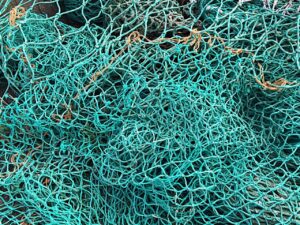
Image by Henri Apell from Pixabay
The net of colonialism is wide with tiny openings from which almost no one escapes. Growing up in the USA I learned that we were the colonizers of the land upon which the nation sits. Despite the emergence of the USA out of the belly of other colonial powers, those who founded the USA continued the same practices as the British, French, Spanish. and Russian powers that began the occupation of North America. As has happened again and again throughout history, the new rulers are the same as the old rulers.
Growing up in California in the 1960s and 1970s and going to university in the 1980s, my cultural milieu was the Civil Rights movement, Second Wave Feminism, Post-Colonialism, Post Modernism and post post. My parents were immigrants to the USA and as such I was positioned as the colonizer who took the land and forced the indigenous people to adopt Western lifestyles under penalty of death. Therefore, I adopted the position of supporting those who had been colonized while not understanding the complexity of colonization despite years of study.
Then I came to Estonia, the land of my father. Estonians are the indigenous people and have been colonized for almost eight hundred years, excluding the period between the twentieth century’s world wars and the last thirty two years. And I am half Estonian. Wow!
In Estonia, my veil of separation between the colonizer and the colonized has fallen. I am at once the victim of centuries of colonization and coming into a colonized country as an someone from an imperial power. I feel lost. Before I came to Estonia, I knew the basic outlines of Estonian history. Yet as I walk on the land my ancestors walked on I am learning different types of knowledge. I am learning as someone whose history and ancestors are part of this story and as someone coming from the USA into a small country that has fewer people than the city in California in which I had been living.
Intellectual understanding of one’s role in the industry of colonization is not the same as walking in the colonized lands. The added benefit of Estonia is that it has not been colonized by the USA, so I could experience one part of the equation without my embeddedness in another part.
One aspect of colonization is forcing the colonized to speak the colonizers language. Yet Estonians have maintained their language and here I am studying it. It’s a different way of thinking than American English and in my learning journey, I am slowly coming to understand that.
For approximately 700 years, German nobility, merchants, and clergy ran things in Estonia, no matter if the land was under the control of Germans, Danes, Swedes, or Russians. That is until WWII, when the Soviet Union became the occupying power creating an exodus of Baltic Germans to the motherland of Germany. Baltic Germans where the German nobility who lived in Estonia for generations and ran the government, controlled the serfs (the Estonians), and whose language was German.
Those few Estonians who rose about the class of house-hold servants, serfs, or artisan culturally assimilated into German norms and language. Even Estonian folklore studies originated from occupiers. Yet through all this, Estonians maintained their unique language.
I can see things here that are invisible to me in the USA. In Estonia I feel the emotional trauma of having to fit into a system that someone else dictated. And that someone else kept changing: German, Polish, Swedish, Russian, Nazi, Soviet. And yet the people survive.
I come from a place of privilege as being white in the USA aligns one in the position of the colonizers because the benefits of being a colonizer are automatically bestowed on you. Of course being a woman, I am also subject to the discriminatory practices and limitations placed on women by the colonizers. Yet in Estonia, I am perceived as Estonian by most people who speak to me in rapid Estonian until they realize I am a second-language learner. When I explain my father was one of the many who fled the Soviet occupation to avoid death or banishment to Siberia, then I become a cousin of Estonian culture.
I can see so much here in Estonia and this an intrinsic part of culture in the USA. I am grateful for this new perspective.